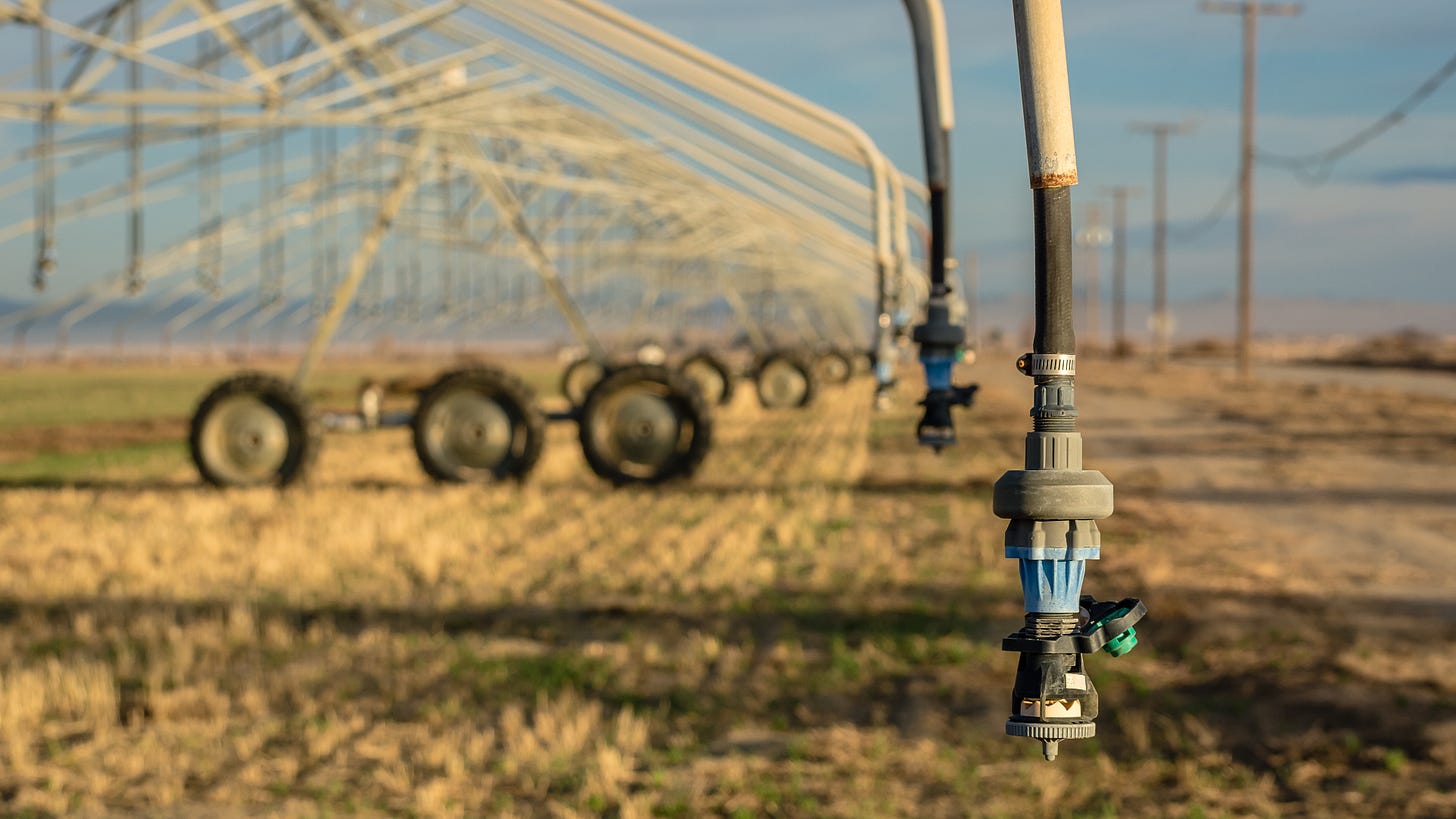Massive Crop Yield Failures Should Feel More Urgent
A Global News story about drought conditions goes by without much of a splash

On June 11, 2023, Global News published a report that explained southern Albertan farmers are hemorrhaging their crop yields, owing to an extremely dry spring. Stephen Vandervalk, vice president of the Western Canadian Wheat Growers Association and a farmer himself, said they a third of their crop was unsalveagable. He explained that it continues “nose diving,” as five per cent of his yield is being lost every day.
According to Vandervalk, and many other agricultural sources spoken to in the piece, it could get worse. “A full crop is gone in cereals,” he said. Cattle are being fed from winter storage crops because of so little grass. Grasshoppers are infiltrating, leading to spot spraying in an effort to avoided spraying and losing the whole crop yields.
This has, to put it mildly, the makings of a disaster. As Vandervalk told Carolyn Kury de Castillo, the only reason Alberta is not in the throws of a food supply crisis is due to improved farming practices over the past 30-40 years.
That isn’t the end of the story, however. The next day, de Castillo reported that a “catastrophic situation” awaits Alberta Ranchers due to the hot and dry conditions that also affected crop yields. As vice chair of the Alberta Beef Producers Sheila Hillmer said, “There’s literally crops not germinating, grass pastures with nothing left and there is a water is a situation [sic] as well for the cattle.”
The first piece has “climate change” as a tag at the end (the beef piece doesn’t). Other than that, no mention is made throughout these pieces of our deteriorating climate, or the industrial forces behind its collapse.
No mention is made of Kansas farmers abandoning their crops after devastating climate conditions. It goes unmentioned that, across the US, winter-wheat farmers “plan to abandon 33% of the acres they planted, the highest percentage since World War I.”
In fact, Lakin, a town in southwestern Kansas, expects to abandon 60 per cent of their crop. Six northern counties in Oklahoma are expecting to lose 65-70 per cent of theirs as well. Kansas’ wheat yields are expected to be the smallest since 1957, when President Eisenhower intentionally suppressed production.
These facts aren’t being connected, explained, or even elaborated past the immediate consequences in the Global piece, let alone the broader Canadian news media. As wildfires raze the country, and drought conditions decimate crop yields, little urgency is raised about climate change’s effects on our agriculture.
The functional ignorance of climate change is not universal. As mentioned last week, The Narwhal found the first draft of Canada’s carbon emissions plan was assisted by a Suncor executive. Fatima Syed does excellent reporting on Ford’s moves to dismantle environmental protections with the publication. The Tyee’s environmental reporting is very much worth the read. There are certainly options for the discerning news consumer to read about climate change and environmental news.
However, this reporting on Alberta’s drought conditions and their effect on farming shows a concerning dynamic. For the past three years, Alberta has had drought conditions affecting their crop yields. Most notably in 2021, but 2022 also brought concerns about water levels before growing conditions improved later in the season.
Why did you need to read my piece to learn that? It’s not reported in the original Global piece. Where’s the urgency? Where are the warnings? Where are the comments from Albertan environmental groups? Where’s the mention of Albertan oil production, or Danielle Smith’s policies towards the industry, like her proposal to pay oil and gas companies to clean up messes they cause in the first place?
Other large news organizations like CBC and CTVNews haven’t covered Alberta’s failing crops, as far as I can tell. Even in the midst of devastating and catastrophic wildfires across the nation, the very real possibility that our food chain could be affected doesn’t receive urgency.
To be clear, there doesn’t seem to be any indication that this will be the cause of a massive food shortage in Canada (at this time). Like mentioned in the Global piece, advanced technology and techniques have kept these drought conditions from causing depression-era shortages. But at what point does reporting relay the full truth behind these shortages? The question becomes maddening, especially considering the deteriorating conditions many Canadians have faced as a result of these wildfires. The climate change issue is deeply connected, but the work is simply not being done to connect them.
But this doesn’t mean there is absolutely no cause for concern. Climate change will only increase the severity of droughts in Canada, especially in BC and southern Canadian prairies, where they’re more susceptible. In the meantime, Canada’s wildfires are undeniably getting worse. Just because we aren’t quite out of the frying pan yet doesn’t mean we shouldn’t be fighting the fire.
We are in crisis mode. Let’s start reporting like it.
Edit: I mistakenly referred to the piece as from CTV in one instance in the first edition. I’ve corrected this and I apologize for the mistake.




Along with most farms lacking a succession plan, our ignorance of the vulnerability of food systems due to climate change in Canada is disturbing to say the least. There is also increasing centralisation of power/ownership which will be exacerbated as smaller farms are unable to handle rising input costs and sell off. Too bad we decided to join the war against Russia as they are about to have a bumper wheat crop. Oh well.